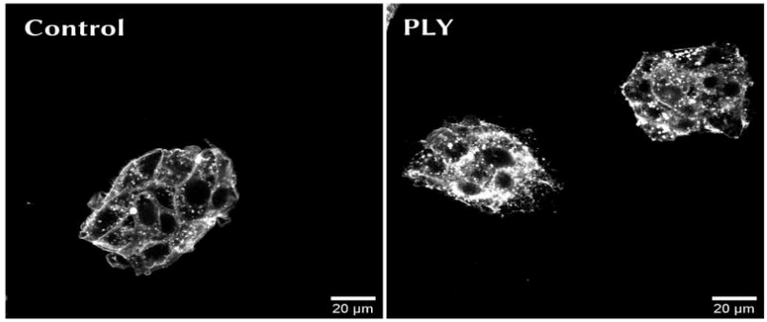
Department of Anesthesiology and Intensive Care Medicine
Pneumolysin (PLY) is a major virulence factor of Streptococcus pneumoniae and crucial for the pathogenesis of invasive pneumococcal disease and sepsis following community-acquired pneumonia (CAP). The β-pore-forming toxin recognizes membrane cholesterol leading to disintegration of the alveolar epithelial barrier and impairment of innate immunity. Remotely, pneumococcal CAP triggers a hepatic activation of the sterol biosynthesis through a yet unknown mechanism that depends on PLY in mice. Supplementation of cholesterol species or delivery of cholesterol by polymer nanoparticles is evaluated as a candidate for adjuvant therapy to counteract pore formation. PLY may be seen as a homeostasis-altering molecular pattern (HAMP) as it directly activates key regulators of the lipid homeostasis resulting in a rapid increase of cellular cholesterol. Some of these effects may be the result of inflammasome-signaling activated through PLY-pore stress. Inflammasome signaling partly contributes to cell death in pneumococcal diseases but on the other hand may also alter the lipid homeostasis, increasing lipid and particular cholesterol biosynthesis. Together we will investigate the nature of the PLY-activated sterol biosynthesis to decipher its relevance in the pathophysiology and survival of life-threatening infections applying molecular and functional assays on cell lines stimulated with bacterial toxines.

Figure: Two-photon microscopy of the Pneumolysin (PLY) induced cholesterol biosynthesis using Filipin III staining to quantify cellular sterols in HepG2 cells.

